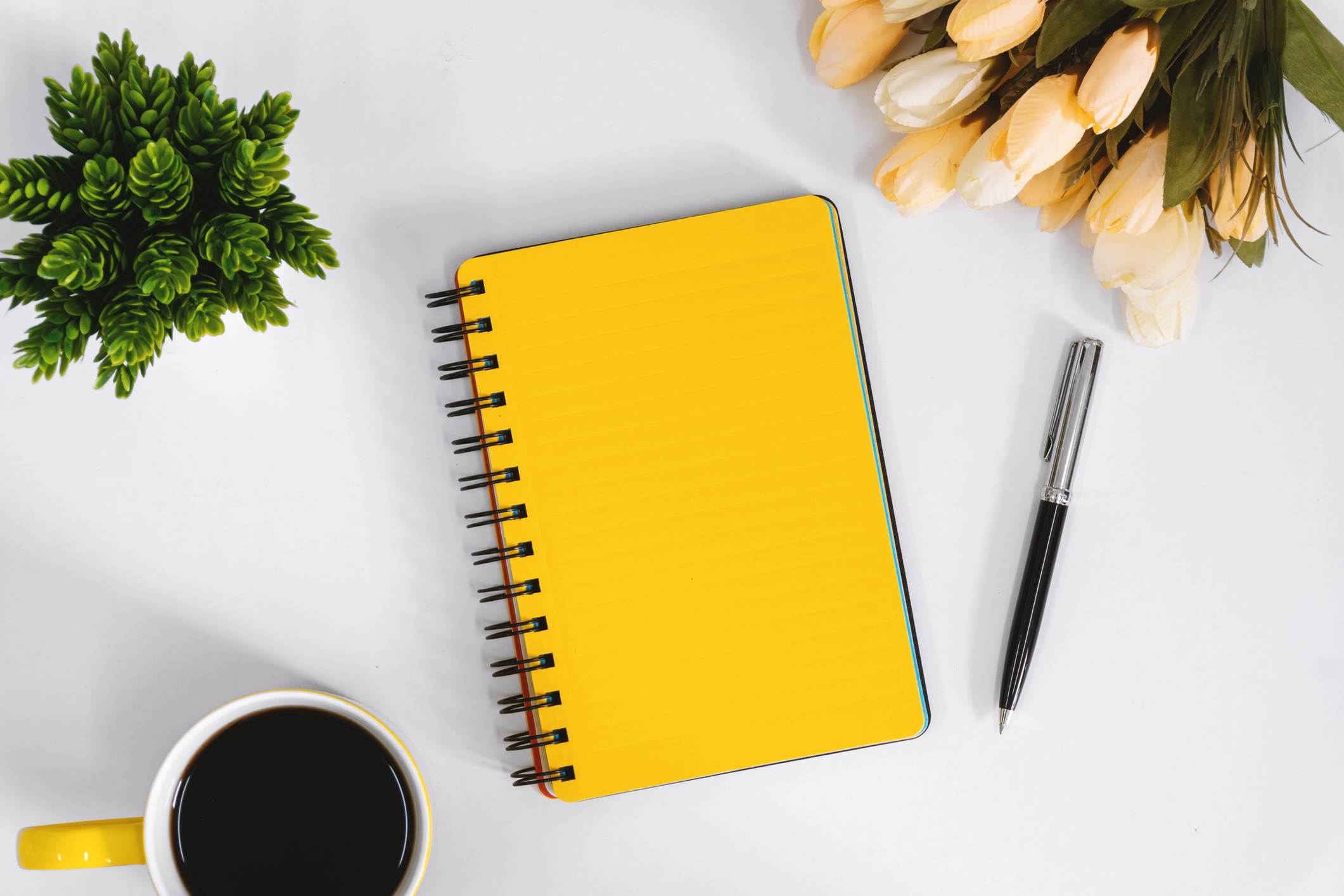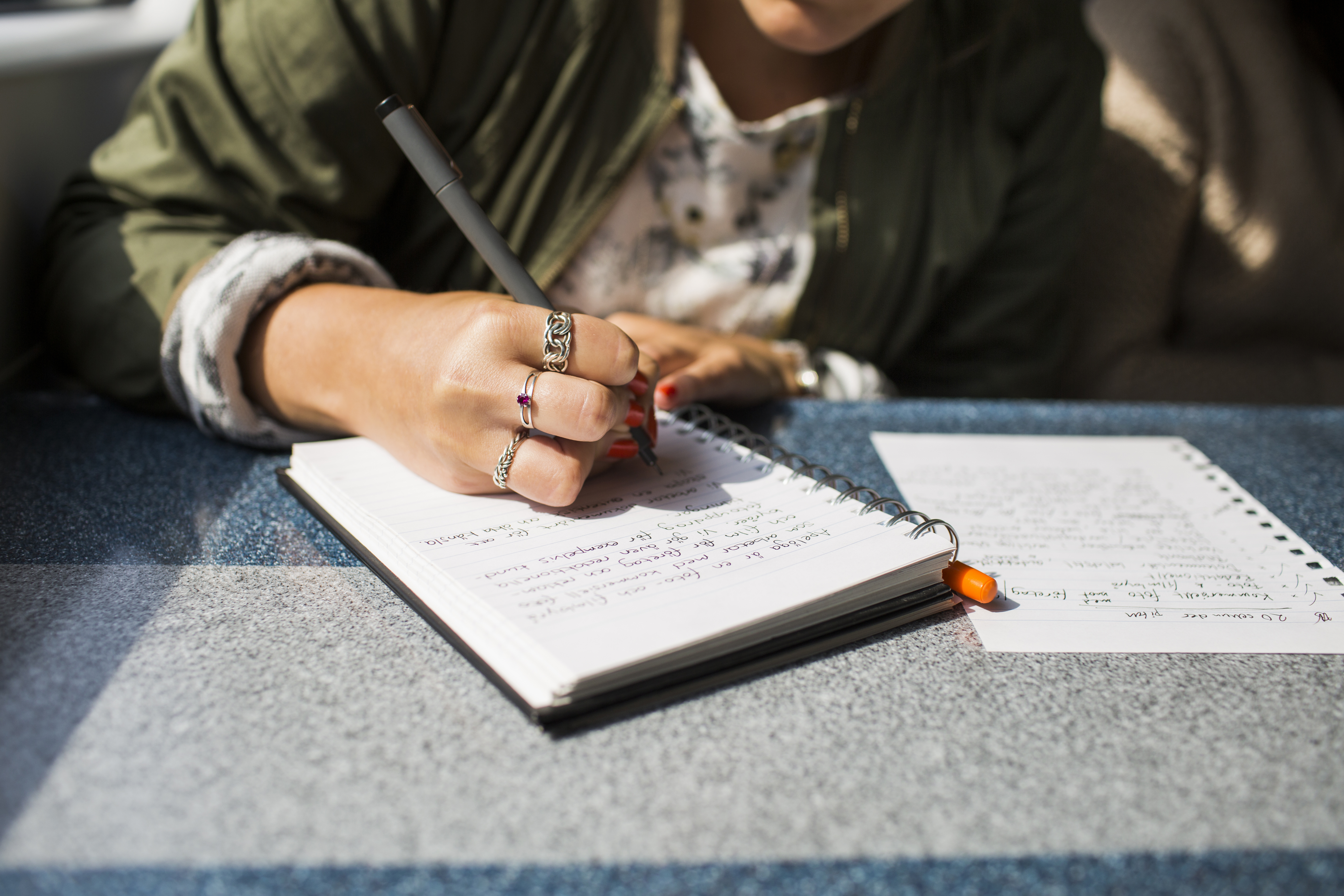Journaling for beginners: how to start putting your thoughts to page
New to keeping a journal? Our journaling for beginners guide will show you how to get the most out of your diary


If you're not already schooled in keeping a journal, this journaling for beginners guide is just what you need. Journaling is one of the best wellness gifts you can give yourself, with everyone from Emma Watson to Michelle Obama singing its praises.
Alongside the best meditation apps, it's a great way to get your mind to relax. But how do you get started? We’ve penned a useful explanation to journaling for beginners, so you can explore the popular practice and find out what works for you.
- Self-care day ideas for a perfect day totally dedicated to yourself
- Crystals for beginners: how to get started on your crystal healing journey
- Jonathan Van Ness' new self-care class on Skillshare is wellness goals
What is journaling, for beginners?
Journaling, from the Old French word journal ("daily"), is a practice of writing down events that happened during your day, as well as recording your thoughts and feelings.
The concept of keeping a journal—or a diary, as others call it—is almost as old as history itself. (Literally, it goes back to ancient Egyptian times!)
In recent years, it’s become a popular wellness trend, which has given rise to various new journaling techniques and a growing interest in its mental health benefits.
How to start journaling, for beginners
Simply, journaling is about putting pen to paper. However, it can be intimidating at first—particularly if you’re not used to writing outside of work, or committing your thoughts to paper.
The good news? There are lots of different techniques to start journaling, and you’re bound to find one that suits you.

Four journaling for beginners ideas
1. Freewriting
The most common journaling style is "freewriting"—simply writing whatever’s on your mind. If this doesn’t come naturally at first (and this is more often the case), imagine your closest friend has asked you how you are. Give an honest answer, which may include relevant details of what happened during the day, or simply an emotion that feels overwhelming.
There are no rules: this technique can be done at any time of day, in any notebook (although do pick a stylish one that you’ll want to use again!). This isn’t a work email or academic essay, so feel free to write in whatever way seems natural. No one’s judging—this is purely for you.
2. Morning pages
Those looking for a little more structure to their journaling practice might benefit from doing "morning pages." This technique is similar to freewriting, but with three strict rules:
- Do it first thing, before other activities
- Write three full pages
- Write long-hand and in stream-of-consciousness style (i.e. noting your thoughts as they come to you)
3. Guided journaling
Not a fan of freewriting? Using a guided journal can ease you into the process. There are many different varieties, typically filled with thoughtful prompts like ‘What are you reading right now?’ (see more below!) and list ideas, such as ‘What are your 2021 goals?’.
4. Gratitude journaling
This involves listing things you’re feeling grateful for—some people choose three things a day, or you could try writing until you run out. This can be combined with other styles of journaling (e.g. free writing), or you can buy a specific gratitude journal. Etsy (or Not On The High Street if you're in the UK) offers a wide range!

What is bullet journaling, for beginners?
Bullet journaling is a popular technique that may appeal if you decide the whole "Dear Diary" approach doesn’t suit you.
While a classic journal may simply be words on a page, a bullet journal (or "bujo" for short) is characterized by a series of bulleted lists. Many bullet journals have dotted grid paper in order to aid structure.
Fans of bullet journaling say it helps them organize their lives, staying mindful of both present and future goals.
There are several methods for ordering your bujo—get inspired by the official Bullet Journal website, or Masha Plan for a more vibrant, creative format.
Some journaling for beginners prompts
Stuck on what to write? Using prompts can help. These will depend on what you want to achieve with your practice. Are you trying to process your current feelings or get to know yourself better? Useful prompts include:
- How do I feel?
- What do I feel grateful for today?
- What made me smile today?
- What am I excited about?
- I feel happiest when…
- What is weighing on my mind today?
- What have I learned about myself recently and how can I carry that lesson forward?
Benefits of journaling for beginners
1. It reduces anxiety
If you have a tendency to catastrophize about future events, chronicling how you’re feeling is a scientifically proven way to reduce the negative effect your worries have on you.
2. It makes you more altruistic
Remember gratitude journaling? One study proved it inspires people to feel more charitable towards others.
3. It helps you move on from negative experiences
Often we struggle to move on after bad things happen. Writing about it can help. Psychologists asked participants going through a divorce to practice narrative expressive writing, where they reflect on events leading up to a key experience, as well as the experience itself. The group showed reduced stress (indicated by a lowered heart rate) following the task.
4. It helps you sleep
Do unfinished tasks keep you up at night? Use your journal to write tomorrow’s to-do list before bed. It’s proven to help you mentally offload so you can sleep soundly.
Francesca Specter is a freelance journalist and the author of Alonement: How to be alone and absolutely own it. Based in north London, she's previously worked for Yahoo Lifestyle, Express.co.uk and Healthy magazine, and has written for the Telegraph, Red and Huffington Post.